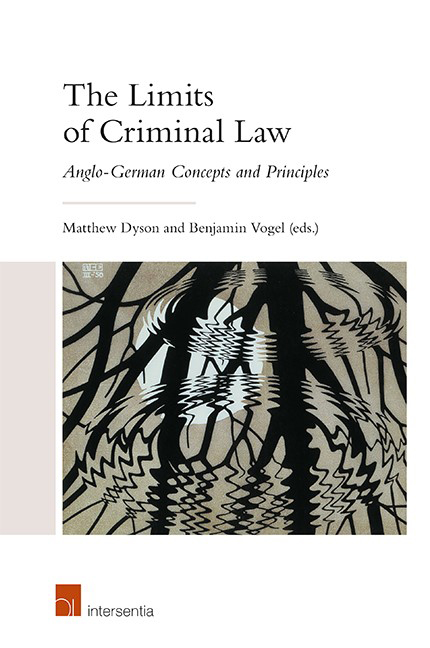Book contents
- Frontmatter
- Preface
- Contents
- List of Cases
- List of Abbreviations
- List of Contributors
- Chapter 1 Introduction
- PART I CORE PRINCIPLES OF CRIMINAL LAW
- PART II CRIME AND TORT
- PART III CRIME AND MEDICAL
- PART IV CRIME AND REGULATION
- PART V ADMINISTRATIVE SANCTIONS
- PART VI ALTERNATIVE ENFORCEMENT
- PART VII COUNTER-TERRORISM
- PART VIII CRIME AND INTELLIGENCE
- PART IX CONCLUSION
- Index
- About the Editors
Chapter 25 - Crime and Intelligence Compared: Secrecy and the Limits of a Fair Trial
Published online by Cambridge University Press: 11 February 2021
- Frontmatter
- Preface
- Contents
- List of Cases
- List of Abbreviations
- List of Contributors
- Chapter 1 Introduction
- PART I CORE PRINCIPLES OF CRIMINAL LAW
- PART II CRIME AND TORT
- PART III CRIME AND MEDICAL
- PART IV CRIME AND REGULATION
- PART V ADMINISTRATIVE SANCTIONS
- PART VI ALTERNATIVE ENFORCEMENT
- PART VII COUNTER-TERRORISM
- PART VIII CRIME AND INTELLIGENCE
- PART IX CONCLUSION
- Index
- About the Editors
Summary
‘Intelligence’, short for ‘intelligence operations’ or similar, usually describes covert forms of state action, in particular, though not exclusively, the collection of information through covert means. While such activities are primarily the domain of intelligence services, covert measures might also be performed by other state bodies, especially police authorities. As explained by Arslan, the distinction between criminal law and intelligence thus does not always correlate with the institutional distinction between criminal justice and police on the one hand and intelligence services on the other hand. At the core of the distinction are differences in modes of operation: whereas interaction between citizens and the state usually happens openly and transparently and thus allows for review in a court of law, intelligence is characterised by a culture of secrecy and usually operates outside the institutional sphere of police, prosecutors and, more generally, the courts. However, as shown in this volume, especially by the chapters on terrorism, the role of covert investigations in the enforcement of criminal law is today increasing in scope and relevance: both the police and intelligence services are using covert investigative methods in their efforts to prevent and respond to crime. The preceding pair of chapters offers a fascinating perspective into how in many different ways the two legal orders define the role of intelligence services as regards criminal justice. The comparative perspective also exemplifies how history impacts on today's legal frameworks in that German law continues to be clearly influenced by the country's experiences with immensely powerful secret services under the Third Reich and in communist East Germany. By contrast, the English experience is more nuanced, having experienced smaller-scale domestic terrorism for decades but not the response of the pervasive use of state apparatus of surveillance, let alone direct control.
While covert measures by the state are today widely recognised as a necessity for addressing serious crime, the hallmarks of such activities do in many ways radically depart from the standards of the criminal law and today in both England and Germany urgently raise questions of how to define the boundaries between intelligence and criminal law enforcement.
WHAT THE LIMITS ARE LIMITING
The use of intelligence points to several key normative limits of criminal justice.
- Type
- Chapter
- Information
- The Limits of Criminal LawAnglo-German Concepts and Principles, pp. 539 - 548Publisher: IntersentiaPrint publication year: 2020



